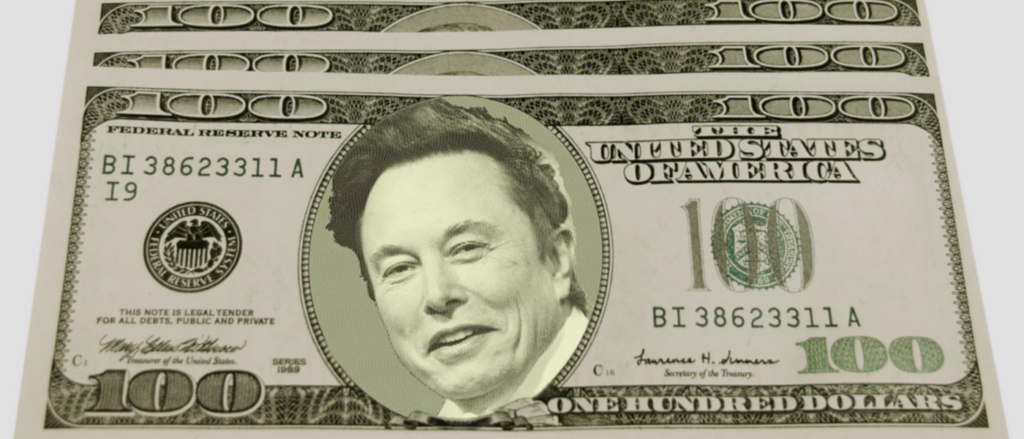President Biden’s Securities and Exchange Commission (SEC) announced Tuesday that it is taking action against Elon Musk for allegedly underpaying for Twitter stock. Musk’s critics have gloated that his purchase was a gross overpay.
The SEC’s enforcement action accuses Musk of violating the beneficial ownership reporting requirements when he bought over $500 million worth of Twitter stock in 2022.
“He was able to make these purchases of Twitter common stock at artificially low prices from the unsuspecting public, who had not yet priced in the undisclosed material information of Musk’s beneficial ownership of more than five percent of Twitter common stock and investment purpose,” the SEC alleges.
The SEC accuses him of underpaying by at least $150 million for the purchase.
When Musk ultimately bought the remaining 95 percent of Twitter stock for $44 billion in October 2022, his critics widely panned his purchase, mocking him for ostensibly overpaying.
Analyst Dan Ives called it “one of the most overpaid tech acquisitions in the history of M&A deals,” arguing the social media site was only worth $25 billion.
Media outlets, which have generally published negative coverage of the mogul, derided his acquisition as overcompensation as recently as November 2024.
“Elon Musk overpaid for Twitter when he bought it for $44 billion in late 2022, after unsuccessfully trying to renegotiate or renege,” Axios wrote in November.
Time Magazine, who made Musk its “Person of the Year” in 2021, cited Fidelity’s markdown of Twitter in a May 2023 article.
“Twitter is now worth just one-third of what Elon Musk paid for the social-media platform,” the outlet wrote.
Fidelity marked down the value of its X stock during the month of October, per a new disclosure (these are always on a 1-month lag).
After the first year of Musk’s ownership, Fidelity has marked down the overall value by 68.12%.
— Dan Primack (@danprimack) December 2, 2023
CNN reported on the precipitous drop-off in his investment in October 2024, again citing Fidelity.
“The social media platform formerly known as Twitter is worth almost 80% less than two years ago when Elon Musk bought it,” the outlet wrote.
Scott Galloway, a professor of marketing at NYU who has previously clashed with Musk, estimated Twitter was only worth $10 billion when Musk bought it, he told Christine Amanpour in a November 2022 interview.
“I think we’re seeing the unwinding not of a company but of a person,” @profgalloway says of Elon Musk and Twitter. “I think this is an individual who has demonstrated a total lack of grace, has no guardrails around him, and is going to see his wealth probably cut in half.” pic.twitter.com/L7bwd0iq5Z
— Christiane Amanpour (@amanpour) November 16, 2022
At Galloway’s proposed valuation, Musk’s $500 million purchase of the five percent of stock would have precisely been how much the stock was worth.
Musk and the SEC have a history of butting heads. The regulatory agency sued him in 2023 to compel him to provide testimony in their investigation into his Twitter acquisition.
Before that, the SEC brought securities fraud charges against him after he tweeted that he had “funding secured” to take Tesla private at $420 a share. The charges led to a 2018 settlement, which forced Musk to step down as Tesla chairman and forced both him and the company to pay $20 million.
Musk’s criticism of the organization has been extensive. In December, he tweeted they were “just another weaponized institution doing political dirty work.”
The SEC is just another weaponized institution doing political dirty work https://t.co/5w9ajcS6bf
— Elon Musk (@elonmusk) December 12, 2024
He has also mockingly called them the “Shortsellers Enrichment Commission” and joked that the “E” in SEC stands for Elon.
He once stated, “I do not respect the SEC.”
The last-ditch effort from Biden’s SEC chairman Gary Gensler to punish Musk for the alleged securities violations could see Musk forced to pay a fine and return some of the difference between the valuations.
It could also serve to divide Trump’s incoming pick for SEC chair, Paul Atkins, from Trump and his allies.
“The new commission is going to be mindful of not wanting to appear to be doing the bidding of the president’s best buddy,” former SEC enforcement attorney David Rosenfeld told Politico.
While Atkins could theoretically throw the case out, University of Tulane law professor Anna Lipton told Politico it was “a very open-and-shut violation,” arguing that the case essentially hinges on whether or not Musk filed the legally required beneficial ownership paperwork.
“You either filed the form or you didn’t,” Lipton concluded.


